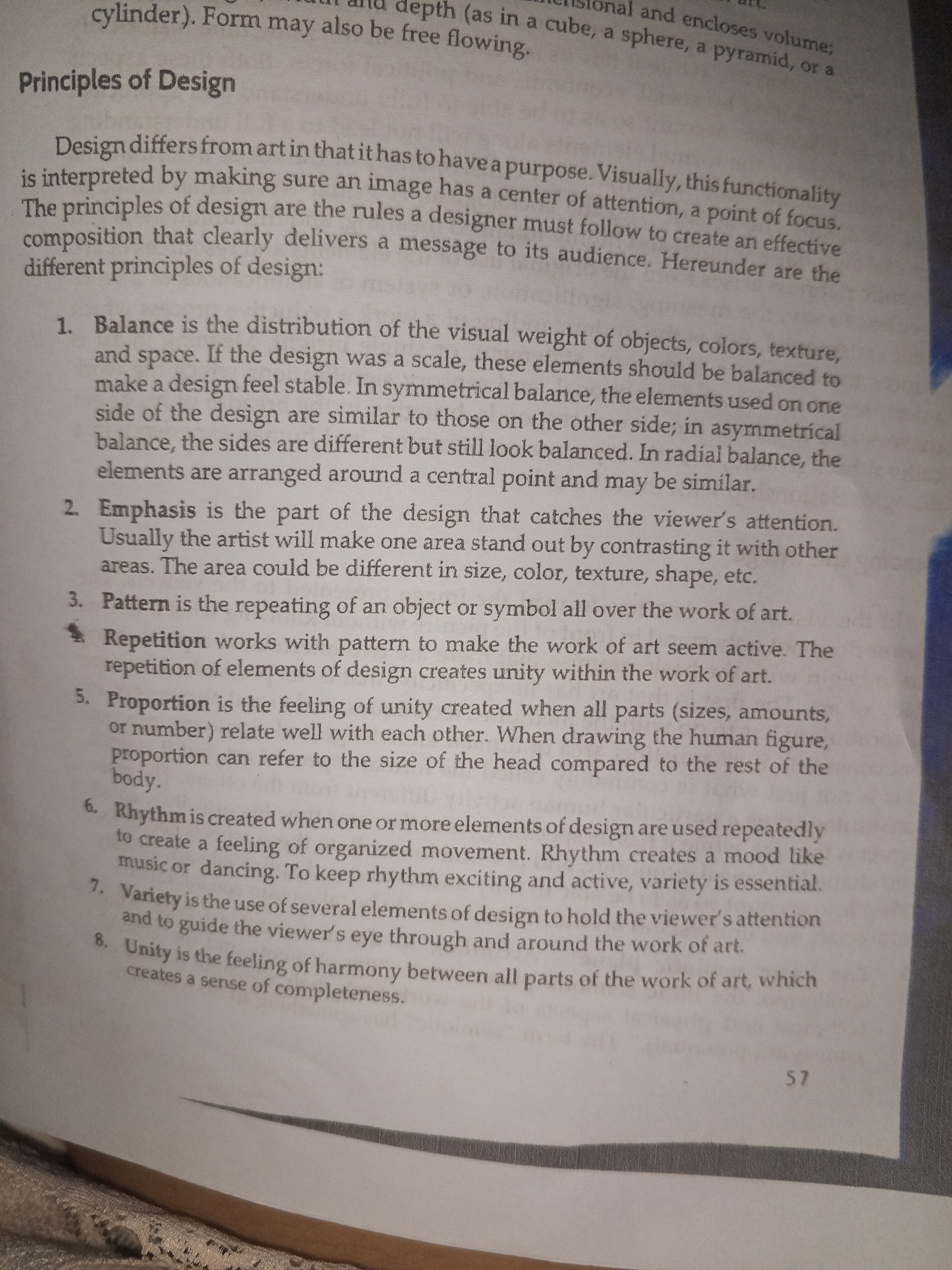What are the principles of design and their significance?

Understand the Problem
The text details the principles of design, explaining concepts like balance, emphasis, pattern, repetition, proportion, rhythm, variety, and unity. It is aimed at understanding how these principles guide the creation of effective designs.
Answer
Balance, emphasis, pattern, repetition, proportion, rhythm, variety, and unity are key design principles.
The principles of design consist of balance, emphasis, pattern, repetition, proportion, rhythm, variety, and unity. These principles are essential as they provide structure and coherence, guiding designers to create visually appealing and effective designs.
Answer for screen readers
The principles of design consist of balance, emphasis, pattern, repetition, proportion, rhythm, variety, and unity. These principles are essential as they provide structure and coherence, guiding designers to create visually appealing and effective designs.
More Information
These principles help in unifying and structuring elements in design to communicate effectively with the audience, ensuring stability, focus, and coherence.
Tips
A common mistake is applying too many principles simultaneously, which can lead to a cluttered design. Focus on a few key principles that best fit the purpose of the design.
Sources
- Principles of Design | Definition & Examples - Study.com - study.com
- Principles of Design – Introduction To Art - Boise State Pressbooks - boisestate.pressbooks.pub
AI-generated content may contain errors. Please verify critical information